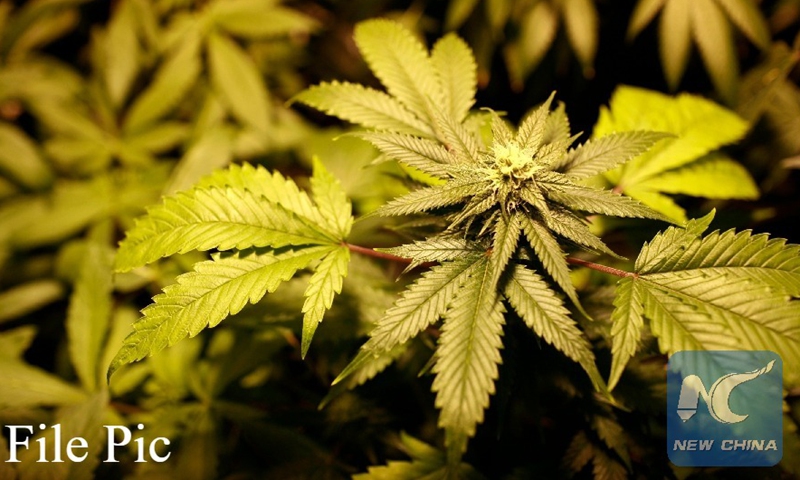
A marijuana plant is shown at Oaksterdam University, a trade school for the cannabis industry, in Oakland, California on July 23, 2009.File photo:Xinhua
Amsterdam may soon have a rival as the European capital of cannabis, with Germany's next government planning to legalize recreational use of the drug.The center-left SPD, Greens and liberal FDP, which presented their plans for Germany's next ruling coalition on Wednesday, have agreed to ease rules on personal use of cannabis.
"We will introduce the controlled distribution of cannabis to adults for consumption purposes in licensed stores," the parties said in their coalition contract.
"This will control the quality, prevent the circulation of contaminated substances and ensure the protection of minors," the document says.
Current German law allows cannabis plants to be grown, sold, owned, imported or exported, and people with certain medical conditions can be prescribed cannabis-based drugs.
Private recreational use of the drug is banned - though police often turn a blind eye to possession of small amounts.
The Greens and FDP have long been pushing to legalize cannabis, while the SPD has proposed testing regulated distribution of the drug in pilot projects.
It is not yet clear whether cannabis in Germany would be sold in tobacco shops, Amsterdam-style "coffee shops" or pharmacies, but the aim is to make it easier to control who can buy it - and what they are getting.
According to the German Cannabis Association, substances that can end up in black-market weed include sand, hairspray, talcum powder, spices or even glass and lead.
Experts also say marijuana can be contaminated with heroin or synthetic cannabinoids, up to 100 times stronger than natural psychoactive cannabinoids.
Legalizing the drug could generate around 4.7 billion euros ($5.3 billion) a year in public finances, according to a recent study by the Heinrich-Heine University in Duesseldorf.
The study also predicts that legalizing cannabis would create around 27,000 jobs.
The prohibition of cannabis costs the taxpayer billions every year in "senseless prosecutions," according to Georg Wurth, director of the German Cannabis Association.
AFP
